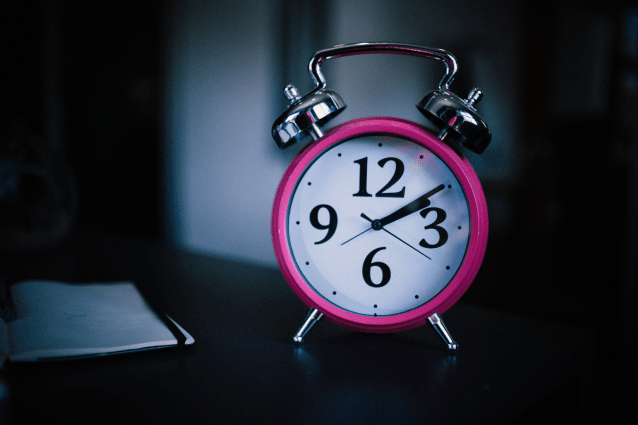Do you find your daily schedule is so full that you have no time to yourself? Perhaps you make up for it by going to bed later at night so you have time to do the things you enjoy instead?
If this sounds familiar, then you’re doing what’s called “revenge bedtime procrastination.” It’s a term that describes putting off sleep so that you can have more leisure time.
Revenge bedtime procrastination is common, and many people use it as a means of coping with a hectic schedule or workday. However, it can have profound long-term implications for your health and wellbeing.
If you’ve been procrastinating about going to bed and are suffering from sleep deprivation, you’ve come to the right place. I’ll share practical ways to fix revenge bedtime procrastination while striking a balance between work and play during the day.
In this article, you’ll learn:
- What revenge bedtime procrastination is and where it comes from
- Signs of revenge bedtime procrastination
- Who is most affected by revenge bedtime procrastination
- The negative implications and long-term effects of revenge bedtime procrastination
- Four ways to fix revenge bedtime procrastination
What Is Revenge Bedtime Procrastination and Where Does the Idea Come From?
“Revenge bedtime procrastination” generally refers to the behavior of someone who sacrifices sleep to do enjoyable activities which they weren’t able to do during the day.
If you’re someone who has a stressful job that takes up most of your time during work hours, you may be tempted to sleep later so that you can have some leisure time—even if it means getting less sleep.
This concept first appeared in China in late 2010 as a response to the “996” work culture (working from 9 am–9 pm, six days a week).
Since then, however, it’s a concept that’s been recognized globally and has been popularized due to changed lifestyles and increased stress due to the COVID-19 pandemic.
Studies show that about 40% of adults find it harder to sleep during the pandemic due to stress and other mental health problems.
Why the word “revenge”?
The word “revenge” originates from a Chinese saying that describes the frustration from being so busy with work that you have no time for yourself.
By reclaiming time for yourself at night, you are “taking revenge” against your daytime schedule.
However, the reality is, this additional time comes at the cost of your physical health and overall productivity due to sleep deprivation.
Signs of Revenge Bedtime Procrastination

A recent study characterized bedtime procrastination as having these three qualities:
- Your late nights reduce your total sleep time
- You’re not up for a valid reason (i.e., you’re not feeling well)
- You’re aware that staying up will impact you negatively
So if you’re on social media or watching YouTube videos late into the night knowing that you’ll suffer tomorrow, it means you’re a bedtime procrastinator.
Furthermore, if feelings of frustration fuel this behavior due to how busy you are during the day, it’s a classic sign that you’re experiencing revenge bedtime procrastination.
Who Is Most Affected by Revenge Bedtime Procrastination?
One study found that students and women were most affected by bedtime procrastination, although the exact reasons are unclear.
However, if you work long hours, have high levels of stress, tend to procrastinate, or are simply a night owl, you’re more likely to be a bedtime procrastinator.
If you’ve been working from home during this pandemic, you may also have lost many of the markers that help separate work from leisure, such as your morning alarm and commuting to the office.
The absence of these markers may disrupt your routine and cause you to go to bed later.
Negative Effects of Bedtime Procrastination

Bedtime procrastinators suffer from sleep deprivation and deficiency, which can have serious consequences.
In the short term, sleep deprivation can cause slowed reaction time and microsleep instances, which are short involuntary episodes of sleep lasting from 1 to 15 seconds.
This compromises your ability to focus, making you less productive at work or school. A lack of sleep also causes drowsy driving, which can have life-threatening consequences.
In the long term, sleep deprivation causes more severe health complications.
Since sleep is crucial for regulating your body’s systems, consistently depriving yourself of sleep causes serious mental and health problems:
Cardiovascular disease: Studies have shown a strong link between lack of sleep with cardiovascular issues, such as high blood pressure, coronary heart disease, heart attack, and stroke.
Hormonal imbalances: Lacking sleep prevents your body from regulating hormones, including cortisol, your stress hormone, and ghrelin, the hunger hormone.
Obesity: It’s been well documented that a lack of sleep is associated with a higher BMI. Studies suggest that staying up late contributes to decreased self-regulation and increased snacking, which leads to weight gain.
Diabetes: Sleep deprivation has been shown to affect the body’s ability to regulate blood sugar, which increases the risk for metabolic diseases such as diabetes.
Immunodeficiency: Sleep deficiency has been shown to weaken immune function and reduce the effectiveness of vaccines, which is a concern, especially during this global pandemic.
Mental health disorders: Studies show that a lack of sleep is associated with mental disorders such as anxiety, depression, bipolar disorder, and attention deficit hyperactivity disorder (ADHD).
Given that sleep affects many of your body’s systems, it makes sense that insufficient sleep has been linked to an increased overall risk of death.
I hope you recognize by now just how crucial sleep is for your long-term health and wellbeing.
In my thirty years of experience as a therapist, one of the things I always ask my clients is, “Are you getting enough sleep?”
Developing good sleep hygiene can make a huge difference in your quality of life. These tips can help you regain control of your day and develop healthier sleeping habits.
Four Ways To Fix Revenge Bedtime Procrastination

Research shows that sufferers of revenge bedtime procrastination recognize that delaying sleep is harmful to their wellbeing, and yet they still participate in it.
Experts call this disconnect the “intention-behavior gap.”
As a professional hypnotherapist, I’ve seen this happen many times. It perfectly illustrates how powerful the subconscious is compared to your conscious mind.
What’s happening is that your subconscious is instinctively seeking pleasure and avoiding pain. Though your conscious mind recognizes revenge bedtime procrastination as destructive behavior, you’re still acting out of instinct because your subconscious is extremely powerful and influential.
These tips will help you set boundaries throughout your day and assert control over your schedule.
Managing your time better will help decrease the amount of stress you experience in the day and subsequently reduce your need to “take revenge” later at night.
Prioritize your goals
Making every item on your to-do list a priority is a recipe for stress. Understand that you can’t do everything in one day.
Write down your goals and then organize them in order of importance. Place the most important goals at the top, while the least important goals go at the bottom. This way, you can focus on accomplishing the most urgent items first.
Learning to prioritize your goals will help declutter your day and manage your stress. Rather than worrying about getting everything done, you can focus on completing only the most essential tasks and work at a more relaxed pace.
By having a more relaxing day, you’ll have more self-control and willpower to go to bed earlier at night.
Schedule breaks and time for leisure
Think of your mind and focus as a muscle; forcing yourself to work even when you’re exhausted is counterproductive. Instead, learn to schedule breaks and leisure, and prioritize them.
I’ve been fortunate enough to work with some of the most successful people globally, and after observing their methods, I’ve learned that self-care is critical to being productive.
Research has shown that taking regular, short breaks during work improves performance because it allows you to have more focus when you’re actually working.
By scheduling breaks, you’re improving your overall performance by increasing both work and play quality.
Once it’s time for bed, your mind won’t be as exhausted, and you won’t feel the need to binge on leisure activities just to recharge.
Draw boundaries between personal and professional life
If you’ve been working from home due to the pandemic, it’s easy to mix both your personal and professional life.
You may be missing the cues that signaled the end of the workday, such as commuting home from the office. Consequently, you might be operating in an “always on” mode, resulting in longer working hours.
To fix this, you’ll need to set clear boundaries separating your personal and professional life.
For example, you could designate a separate space for your home office and only work in that space. It’s also a good idea to have a cut-off time at which you’ll stop responding to work messages and emails.
Revenge bedtime procrastinators tend to stay up late because that’s also the only period they can have some uninterrupted personal time.
Drawing clear boundaries allows you to focus on self-care according to your schedule without taking away from your sleep.
Consider hypnotherapy

If you find that you still have trouble with revenge bedtime procrastination, you may want to consider sleep hypnosis. Sleep hypnosis can help reduce sleep deprivation and help you get a good night’s sleep.
Hypnotherapy works directly with your subconscious mind, which helps release the stress and mental blocks that make it difficult for you to fall asleep or make you procrastinate your bedtime.
After helping thousands of clients around the globe, I know how important sleep is to your overall quality of life. That is why I’ve put together a specific program to help you achieve deep, unbroken sleep.
Using the latest techniques in hypnotherapy, I’ve designed my audio hypnosis course to increase your sleep quality.
Listening to the audio repeatedly will help you fall asleep easier at night without being glued to your screen or tossing and turning in bed. The result is that you wake up each morning more rested and more energized during the day.
Click here to listen to an audio sample of the course.
Some of my clients who have tried this swear by it, claiming that their sleep has never been better. I’m so excited for you to try this course, and I cannot wait to hear how it’s improved your quality of life!
Final Thoughts

Revenge bedtime procrastination is a terrible affliction due to how falsely empowering it is.
You may feel a momentary sense of reclaimed control, but the reality is that procrastinating your bedtime is an act of self-sabotage.
Depriving yourself of sleep does nothing but take away your health, wellbeing, and overall quality of life.
Start working on organizing your goals and developing clear boundaries at work to relieve daytime stress.
At night, work on getting good quality sleep with good sleeping habits and therapeutic methods like sleep hypnosis.
I am confident that you’ll notice an immediate improvement in your health and quality of life.




